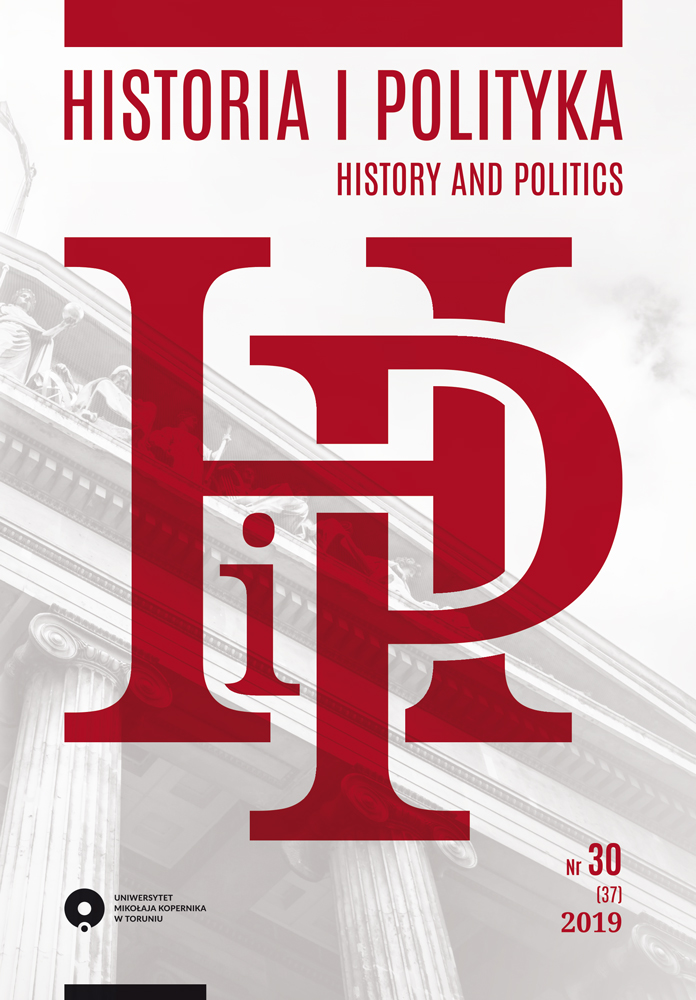Models of Economic Space Ecologization Under the Conditions of Sustainable Development
DOI:
https://doi.org/10.12775/HiP.2019.033Słowa kluczowe
ecologization, economic system, sustainable consumption and production, “green growth”Abstrakt
The article concerns the problems of the global economic space in terms of its ecologization. In the conditions set by the modern concept of sustainable development, an important task is to study the theoretical and practical aspects of the process of the economic system ecologization, which is the purpose of this study. The article outlines the basic principles of the functioning and co-existence of the ecological and economic systems, presents the main models of environmental modernization of the economy (in particular, the models of sustainable consumption and production). The authors focus on the concept of “green growth” and generalize the analytical basis of the green growth strategy, in particular the necessary conditions and instruments of the state policy. Summing up, the authors highlight important and priority areas of ecologization of the economic development of society.
Bibliografia
Deyli, H. (2002). Poza zrostannyam. Ekonomichna teoriya staloho rozvytku. Kyyiv: Intelsfera.
Dokholyan, A. (2011). Problemy ustoychyvoho razvytyya ékonomyky rehyona. Sovremennye problemy nauky y obrazovanyya, 5. Retrieved from: https://www.science-education.ru/ru/article/view?id=4975.
EaP Green (2016). Measuring the Green Transformation of the Economy: Guide for EU Eastern Partnership Countries. Partnership for Environment and Growth, Paris. Retrieved from: http://www.green-economies-eap.org/resources/EaP%20GREEN_GGI%20Guide_clean_ENG_FINAL.pdf.
EaP Green (2017). Greening Economies in the EU Eastern Neighbourhood. From Commitment to Results. Partnership for Environment and Growth, Paris. Retrieved from: http://www.green-economies-eap.org/resources/EaPGREEN_BR_UPDATE_2017_FINAL_WEB.pdf.
Goal 12: Ensure Sustainable Consumption and Production Patterns (2019). United Nations. Retrieved from: https://www.un.org/sustainabledevelopment/sustainable-consumption-production/.
Ikerd, J. (2012). The Essentials of Economic Sustainability. Sterling, Virginia: Kumarian Press.
OECD (2011). Towards Green Growth. Organisation for Economic Cooperation and Development, Paris. Retrieved from: https://read.oecd-ilibrary.org/environment/towards-green-growth/summary/english_9789264111318-sum-en#page7. DOI: https://doi.org/10.1787/9789264111318-sum-en.
OECD (2014). Green Growth Indicators 2014. Organisation for Economic Cooperation and Development, Paris. Retrieved from: https://read.oecd-ilibrary.org/environment/green-growth-indicators-2013_9789264202030-en#page1. DOI: https://dx.doi.org/10.1787/9789264202030-en.
Omel’chenko, A., Obykhod, H., & Nechytaylo, T. (2016). Ekolohizatsiya ekonomichnoho rozvytku yak faktor modernizatsiyi vyrobnytstva. Ekonomist, 6, 24–27.
Pigou, A.C. (1920). The Economics of Welfare. London: Macmillan and Co.
Stavins, R.N., Wagner, A.F., & Wagner, G. (2003). Interpreting Sustainability in Economic Terms: Dynamic Efficiency Plus Intergenerational Equity. Economics Letters, 79(3), 339–343. DOI: https://doi.org/10.1016/S0165-1765(03)00036-3.
Schneider, F., Kallis, G., & Martinez-Alier, J. (2010). Crisis or Opportunity? Economic Degrowth for Social Equity and Ecological Sustainability. Introduction to this Special Issue. Journal of Cleaner Production, 18(6), 511–518. DOI: https://doi.org/10.1016/j.jclepro.2010.01.014.
UNDESA (2013). A Guidebook to the Green Economy. Issue 4: A Guide to International Green Economy Initiatives. United Nations Division for Sustainable Development. Retrieved from: https://sustainabledevelopment.un.org/content/documents/916guidebook4.pdf.
UNEP (2014). Sustainable Consumption and Production (SCP). Targets & Indicators and the SDGs. UNEP Post-2015 Discussion Paper 2. United Nations Environment Programme. Retrieved from: https://www.iisd.org/sites/default/files/publications/scp_targets_indicators_unep.pdf.
UNEP (2015). Sustainable Consumption and Production. A Handbook for Policymakers. United Nations Environment Programme. Retrieved from: https://sustainabledevelopment.un.org/content/documents/1951Sustainable%20Consumption.pdf.
UNIDO and OECD (2018). Financing Resource Efficient and Cleaner Production by SMEs in the EU Eastern Partnership Countries: A Stakeholders’ Guidebook. EaP GREEN Publication. Retrieved from: http://www.green-economies-eap.org/resources/Stakeholders%20Guidebook%20for%20RECP%20finance%20in%20EaP.FINAL.pdf.
United Nations (2002). Plan of Implementation of the World Summit on Sustainable Development. A/CONF.199/20, Chapter I, Resolution 2 (pp. 6–72). United Nations, Johannesburg. Retrieved from: https://www.un.org/ru/events/pastevents/pdf/plan_wssd.pdf.
United Nations (2018). Sustainable Consumption and Production Policies. Retrieved from: https://www.unenvironment.org/ru/node/1665.
Vernadskyy, V.Y. (1977). Razmyshlenyya naturalysta (v 2-kh kn.). Moskva: Nauchnaya mysl’ kak planetarnoe yavlenye.
Pobrania
Opublikowane
Jak cytować
Numer
Dział
Licencja
Uniwersytet Mikołaja Kopernika w Toruniu respektuje prawo do prywatności i ochrony danych osobowych autorów.
Dane autorów nie są wykorzystywane w celach handlowych i marketingowych. Redaktorzy i recenzenci są zobowiązani do zachowania w poufności wszelkich informacji związanych ze złożonymi do redakcji tekstami.
Autor, zgłaszając swój tekst wyraża zgodę na wszystkie warunki i zapisy umowy licencyjnej (określającej prawa autorskie) z Uniwersytetem Mikołaja Kopernika w Toruniu.
Statystyki
Liczba wyświetleń i pobrań: 535
Liczba cytowań: 0



